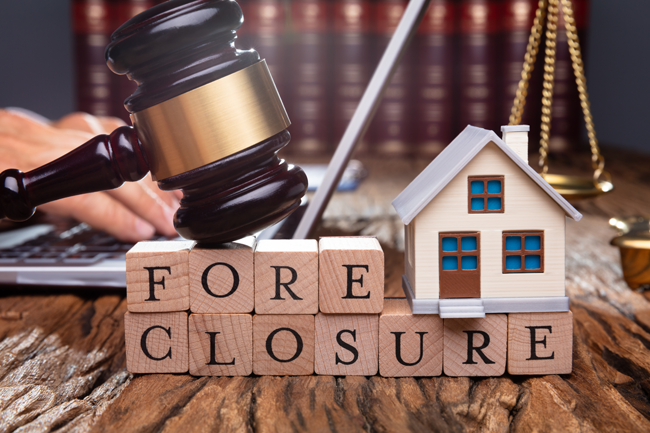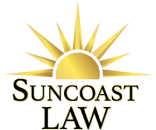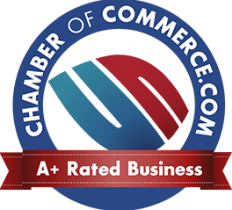Orlando Foreclosure Defense

When many people think about foreclosure they are overwhelmed. For some this feeling is paralyzing and they have no idea about what can be done to save their home. Often times these people are so frightened, they never seek the help they need. SunCoast Law foreclosure attorneys understand the emotions that people facing foreclosure feel. Whether you are one month behind on your mortgage or already in litigation, we have professionals available to take your call and examine your situation. Unfortunately, tough economic times have forced more and more families into foreclosure, but this does not mean you have to part with your home. There are a variety of options that banks offer to people having trouble paying their mortgage, and our staff has worked with thousands of families in finding a solution.
The one word most homeowners never want to hear is foreclosure. It overwhelms them and leaves some feeling paralyzed by the notion or mere mention of it. As panic sets in for many homeowners, they scramble to save their homes.
Often people are so frightened, they never seek the legal advice they need. Suncoast Law is a law office in Orlando. It is full of foreclosure defense attorneys with years of experience. We understand the emotions people feel when facing foreclosures. Whether you are one month behind on mortgage payments or in litigation, our law office can help.
We pride ourselves on building trustworthy attorney-client relationships. It starts with the initial consultation. Suncoast Law’s team of foreclosure lawyers will take time to connect with you. We examine your financial situation and provide legal services. Unfortunately, tough economic times have forced many families into a foreclosure lawsuit. But with proper legal representation, you do not have to give up on your home. There are options and methods that your Orlando foreclosure attorney will look at. Your Suncoast Law foreclosure lawyer will speak with the bank. They will try to see if they might offer some relief to people having trouble paying their mortgage. Our team of lawyers has worked with thousands of families. We have helped to find a solution to many of their foreclosure cases. Now, let us help you.
Florida’s Foreclosure Law
The Foreclosure process in judicial states begins when you miss a payment on your home. After your first missed payment, your lender will contact you by mail or phone to notify you of your missed payment. Within a few weeks of your first missed payment, fees will begin to apply to your mortgage. If you are unable to make any mortgage payments for three consecutive months, your lender will usually give you a 30 day period to make up your missed payments. If you cannot pay what you owe within the 30 days your lender will begin a foreclosure action against you.
If you miss a payment on your home, the first and best thing you can do is contact your lender. Talk to them about your current financial situation and provide payment plans.
Some homeowners who cannot make a mortgage payment will avoid their banks, but this is a big mistake. Communication can go a long way in these types of scenarios.
Believe it or not, your lender does not want to foreclose on your home. Why? Because foreclosure proceedings are expensive.
You should reach out to your bank to inform them about your current payment problem. They may offer you options to resolve it.
Your lender may suggest alternatives, like a mortgage modification, which can prevent foreclosure.
During this challenging time, communication and information are of the utmost importance. Make sure you are well-informed about foreclosure laws and how to avoid foreclosure.
The best route you can take is to speak with a foreclosure attorney at Suncoast Law.
Foreclosure defense lawyers at Suncoast Law can help you understand your rights. They will work with your lender to find the best solution for you.
Our goal is to help you avoid foreclosure, experience debt relief, and have a fresh start.
When you set up a free consultation with our team, we will review options about foreclosures. Some of these options include reinstatement, estate planning, forbearance, and loan modification.
Depending on your situation, some may have to choose to file for Chapter 13 bankruptcy.
Once you know your options, we can help you decide which course of action to take. We will help you meet your long-term financial goals.
Florida’s House Bill 87
The foreclosure process of a judicial state is much slower than a non-judicial one.
To speed up the Florida foreclosure process, the governor (at the time) signed House Bill 87 into law (also known as the Florida Fair Foreclosure Act).
House Bill 87 changed Florida’s foreclosure law in many ways.
What did House Bill 87 do to Florida’s foreclosure law?
- Sped up Florida's foreclosure process
- Made recovering a home after foreclosure impossible in certain circumstances
- Lenders must produce evidence of the promissory note with its complaint
- Limits deficiency judgments.
Lienholders, like homeowners’ associations, can request a foreclosure to go through the expedited process.
The law makes foreclosure judgments final.
When a lender forecloses, the borrowers’ total debt sometimes exceeds the foreclosure sale price. The difference between the total debt and the sale price is called a “deficiency.”
In Florida, lenders can seek a “deficiency judgment” against borrowers to recover from the deficiency. Once this is complete, the lender may collect this amount from the borrower.
In 2013, the time at which the lender may seek a deficiency judgment was reduced. It went from five years to down to one for residential properties with no more than four dwelling units.
Who Do We Serve? Suncoast Law proudly serves homeowners living in Florida:
- Orange County
- Volusia County
- Winter Park
- Altamonte Springs
- Maitland
- Longwood
If there comes a time when you have to face foreclosure on your home, we hope you will think of us.
Our experienced lawyers want to help you during this time to keep you from having to leave your home.
To speak with an Orlando Bankruptcy Attorney, please call (800) 535-3215
Foreclosure Action Defense
- Orlando Foreclosure Defense
- Bankruptcy Property Attorneys
- Foreclosure as an Option - The negative consequences
- Get Answers Now
Short Sale vs Foreclosure
- Short Sale and Foreclosure Options
- The Best Option for Homeowners in Financial Distress
- Get The Facts from a Trusted Legal Professional
Stripping A Second Mortgage
- Stripping A Second Mortgage
- Is Bankruptcy Right for You?
- Free Consultation with Experienced Debt Relief Attorneys
Residential Foreclosure
- Residential Foreclosure
- Reinstatement
- Forbearance
- Repayment Plan
If you need to find a solution, contact a member of our team. SunCoast Law can help! We offer free initial consultations to all of our clients and would be happy to meet with you one-on-one.

If your mortgage lender agrees to a loan modification, it cannot initiate a foreclosure action unless it alleges you did something to violate the terms of the mortgage and/or modification agreement. However, if your lender has not agreed (in writing) to a loan modification and you are in default on the terms of your mortgage, it can initiate a foreclosure action at any time.
Yes, there are two different options that can be taken to stop a foreclosure auction/sale. One, to request the Court that is overseeing the foreclosure to cancel the auction/sale. Two, to file a bankruptcy petition. Both of these options are only temporary and a long term strategy will need to be adopted in order to prevent the foreclosure auction/sale permanently.
There is no set rule on this. Postponing or cancelling a foreclosure auction/sale is completely within the discretion of Judge that is overseeing your foreclosure case.
You typically have a week to two weeks to vacate.




